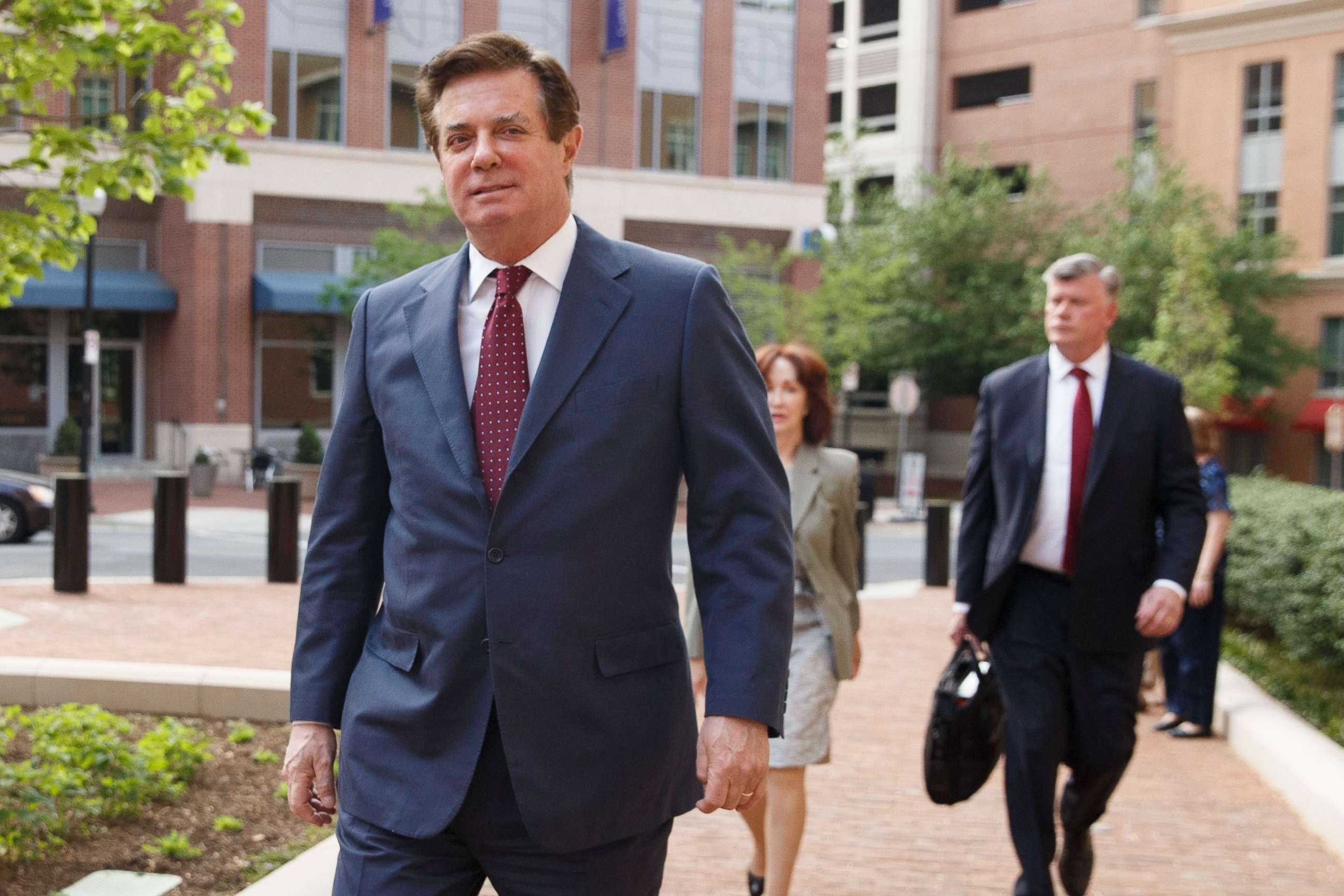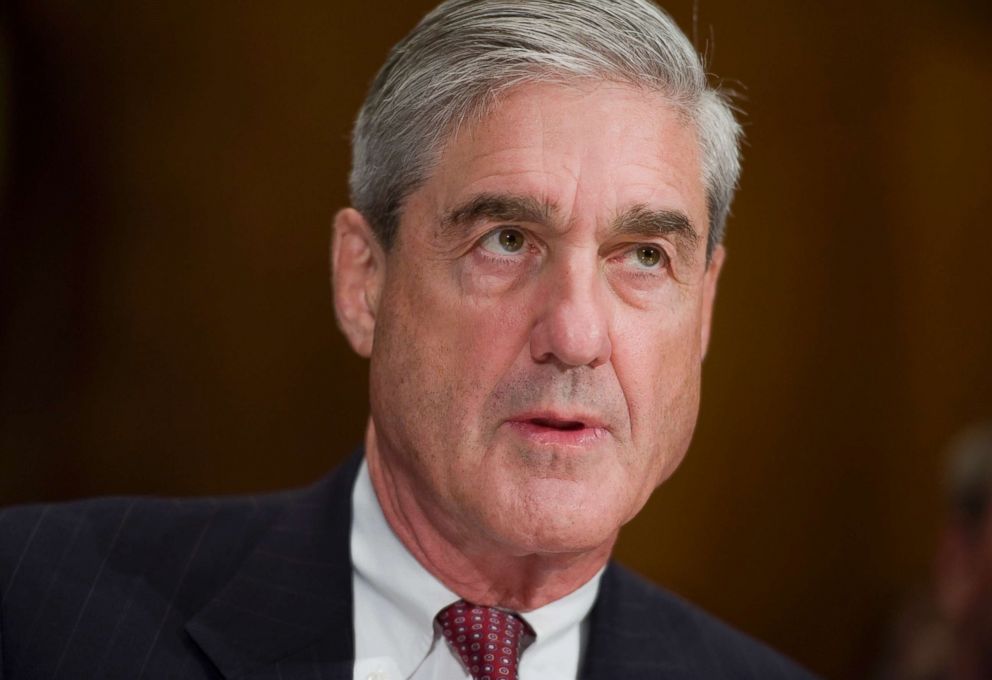A look at President Trump's new favorite judge
Judge T.S. Ellis is getting some high-profile attention.
It was just over a week ago that President Donald Trump and his legal team in their eyes got vindication -- a federal judge that questioned the scope of special counsel Robert Mueller's now one-year-old probe. The judge, T.S. Ellis, questioned the scope of the probe as he presided over a second case involving former Trump campaign chairman Paul Manafort, who faces a 32-count indictment in the Eastern District of Virginia in addition to another mountain of charges in a D.C. federal court. Manafort has pleaded not guilty to all charges.
During the often-contentious proceeding, the judge -- hearing arguments over a defense motion to throw out the indictment -- said that "nobody has unfettered power," referring to the special counsel's investigation. “These allegations clearly pre-date the appointment of the special counsel,” the 30-year veteran of the bench said just two minutes into the hearing speaking about the charges against Manafort. “None of it had any relation to the campaign.”
The motion to dismiss the Virginia indictment against the veteran GOP lobbyist was filed by the Manafort legal team earlier this month and awaits a ruling from Ellis.
All of this came as prosecutors on Thursday turned over what is likely the last piece of evidence before Ellis makes his final decision on the motion -- an unredacted copy of the acting Attorney General Rod Rosenstein’s memo from last year setting out the scope of the federal probe of Russian interference in the 2016 election.
Ellis, who was appointed by President Ronald Reagan, caught the attention of many in that early May hearing after he poked, prodded and even appeared to question the motives of the prosecutor arguing against the effort to have the case thrown out.
Trump, who has openly bashed federal judges in the past, pounced on the possible turn of events for his former top adviser, saying in a speech to the National Rifle Association that evening, “Just when I’m walking on the stage, a highly respected judge in Virginia made statements.”

Trump then read some of the judge’s quotes in media reports and fawned further, “He is really something very special, I hear, from many standpoints.”
Since then, many have tried to predict how Ellis will rule. Those with experience trying cases before the judge described him as unrelenting with an unprepared attorney, exacting on those who attempt to delay his court and prone to pepper lawyers with pointed questions and barbed commentaries, a particular trademark of the 78-year old jurist.
“Don’t read very much into it. He will, in the end, follow the law, and the law is pretty clear. It happens. I wouldn’t read much in this,” one former federal prosecutor, who has appeared many times before Ellis, told ABC News.
Another attorney who also appeared regularly before a sometimes cantankerous Ellis, a former trial lawyer, said the judge does not look warmly upon prosecutors from the Justice Department or from outside the Eastern District of Virginia.
This point was hammered home repeatedly on that May day in court, as the judge had previously dressed down the Mueller team for appearing without “a local attorney” -- meaning one from the U.S. Attorney’s Office in Ellis’ own district. He smiled broadly when he looked out and saw that the prosecution had done just that.
“You didn’t have to do that, but I’m glad you did,” the judge said, asking that attorney, Uzo Asonye, an assistant U.S. attorney, to stand and be recognized.
One anonymous poster in The Robing Room -- a blog for lawyers to rate and review judges -- summed up a view of Ellis shared by two other attorneys who have appeared before the judge, writing, “When Friday motion day comes in his courtroom, it is obvious that Judge Ellis is the smartest man in the room. Unfortunately, he will frequently make it plain that he knows he's the smartest man in the room, and act accordingly. Few judges have his encyclopedic knowledge of case law, and fewer still will show his level of familiarity with the pleadings you submit to him -- so you can't usually slip a fast one by him. ... This is one judge you want to avoid angering, because his temper can sometimes be volcanic.”
That signature volcanic anger spilled out in the Manafort case, aimed at Michael Dreeben, the prosecutor from the special counsel team known widely in the legal community to be among its top criminal law experts.
“You’re running away from my question!” Ellis shouted, cutting off Dreeben as he attempted to explain that the federal probe’s scope was legally sound and set out properly in the detailed memo signed by Rosenstein.
The judge pounced, immediately holding up and waving his own heavily redacted copy and demanding to see the classified, unredacted version, noting his vast experience with sensitive national security cases. Rather than let the prosecutor explain the memo, Ellis said, “As they say, I’ll be the judge.”

“He is a judge who is assertive in the courtroom and not shy about challenging, but I would not use his line of questioning to predict how he is going to rule on a matter," the former federal prosecutor said.
At a proceeding just before Manafort’s in May, a young defense attorney attempted to parry repeated challenges from Ellis about her neonatologist client, and when she asked for a delay to allow the doctor’s hospital to find a replacement on the day of the next hearing, the judge, without skipping a beat, said, “They’ll have to make other arrangements. This court doesn’t sit for the convenience of physicians.”
When Reagan nominated the Harvard-trained lawyer to the federal bench in 1987, Ellis had no experience as a judge. He had spent the better part of two decades as a trial lawyer primarily in civil litigation from nuclear waste concerns to state tax matters and personal injury cases -- on both the federal and state level -- in one of Virginia’s largest law firms.
When senators asked about this lack of experience at his confirmation hearing, Ellis said his “principal challenge” would be “maintaining impartiality and the appearance of impartiality. ... Trial lawyers always and everywhere are enthusiastic advocates for one or another cause. This zealous advocacy is the antithesis of judicial behavior.” He added, “I am also specially mindful of a judge's responsibility to decide cases based on the facts and laws, not on the skills or brilliance of the lawyers arguing the cases.”
At the hearing, Sen. John Warner, R-Va., who had recommended his fellow Virginian for the post, introduced Ellis, referring to him as “Tim,” as he said his friends do, and calling the nominee a “fine, outstanding American who is eminently well qualified.”
Warner, a former secretary of the Navy, commended Ellis’ service and noted that he was well-known in the Richmond, Virginia, area -- his hometown -- for his assistance to Vietnamese refugees who resettled there. Ellis described that work -- which he did with his wife -- to the senators as “my most significant pro bono work.”
In 2008, Ellis, an immigrant born in Colombia, South America, held the first naturalization ceremony at Arlington National Cemetery, giving “an emotional tribute,” according to an account from The Washington Post. He had regularly held similar ceremonies in his own courtroom, but -- according to the Post -- he wanted to do something special. He also refused to have politicians at the event, according to the paper.
One white-collar defense attorney with experience in the Virginia federal court said Ellis seemed to relish high-profile cases, like John Walker Lindh -- the American who pleaded guilty to reduced charges after fighting for the Taliban -- and Rep. William Jefferson -- convicted of corruption after stashing some of his ill-gotten money in his freezer.
For those looking for clues as to how he will rule and how he will run a trial -- which, for Manafort, is set to begin July 10, he offered guidance more than 30 years ago in his own confirmation hearing that some think still holds today.
Ellis repeatedly expounded on the need for moving a proceeding along without delay. “My experience in trying complex cases has led me to conclude that it is vitally important that judges act purposefully and firmly to manage these cases,” he told the senators. “Complex litigation must be carefully planned. It is not enough simply to permit the parties to move the litigation at the pace they choose and in directions they choose, for there is invariably no agreement on pace or direction.”
Already the Manafort case is unusual, as noted by the D.C.-based federal judge who is also poised to hold her own Manafort trial months after Ellis. Judge Amy Berman Jackson, in one court proceeding, said the outcome in Virginia could present legal complications if a decision by her is different. In fact, she recently ruled against a similar motion by Manafort to dismiss the case.
But for now, Ellis is the focus, and how he will rule is anyone’s guess.




